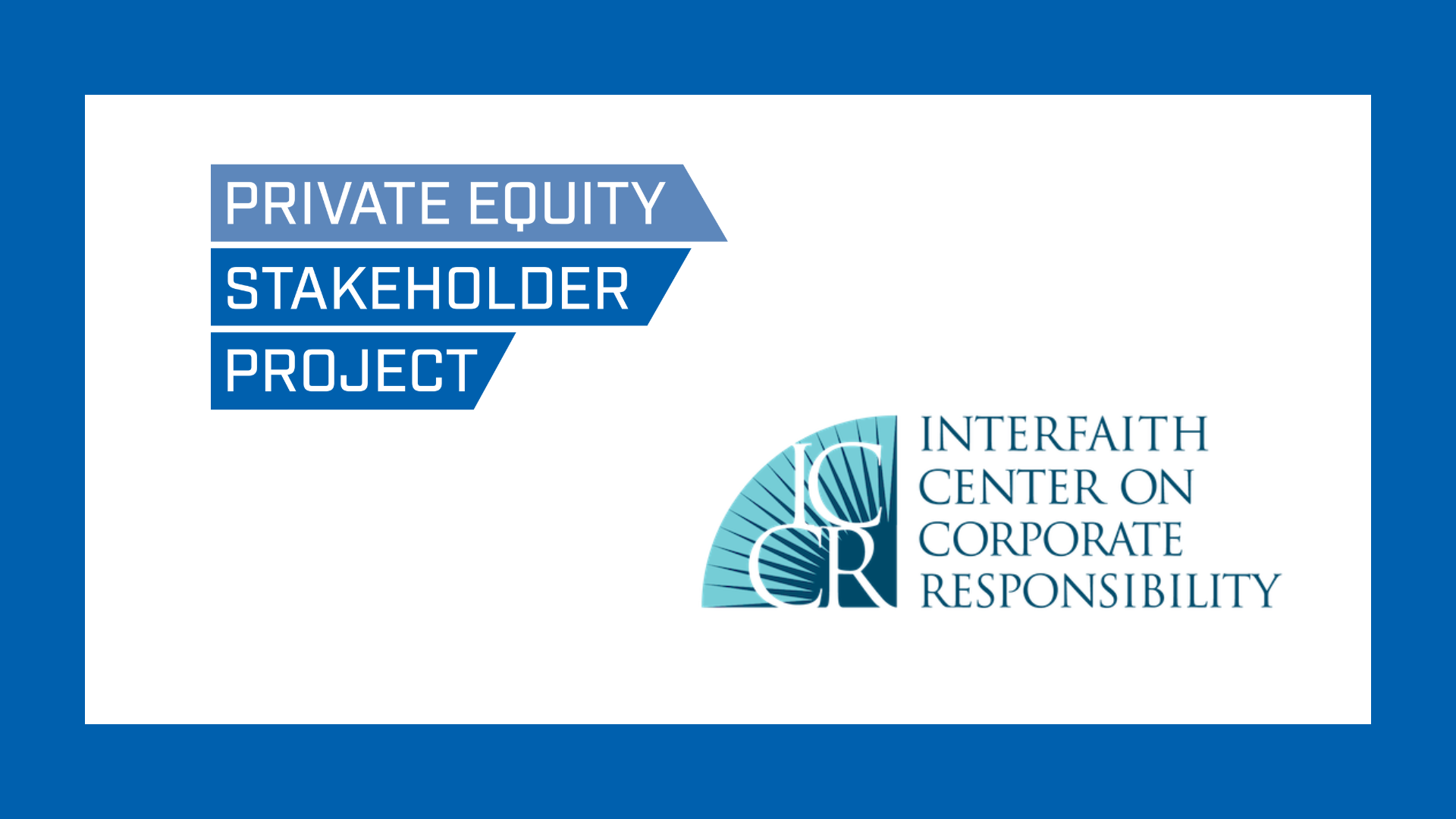
PESP leads discussion on investor tools to address private equity risks at ICCR Conference
September 25, 2024
Last week, the Private Equity Stakeholder Project (PESP) presented at the annual Interfaith Center on Corporate Responsibility (ICCR) conference in New York City. ICCR is a coalition of faith- and values-based investors who engage companies to catalyze social and environmental change.
The panel, titled “Leveraging Investor Power in Private Equity,” examined the human impacts of private equity investments and associated fiduciary risks, and explored models for investor engagement to ensure accountability and alignment with ICCR members’ goals.
PESP’s Azani Creeks, Valentina Dabos, and Eileen O’Grady presented on the panel. They were joined by Mike Musaraca, consultant to North America’s Building Trades Unions (NABTU) and SHARE.
The panelists described how private equity firms and other private markets asset managers, which today manage assets worth nearly $15 trillion, are implicated in some of the biggest social and economic issues of our time: low wages and job insecurity for workers, increasingly expensive and inaccessible housing, poor patient care, and climate disasters.
Though private markets continue to grow, the landscape is shifting – the industry itself is diversifying, interest rates are high, workers are organizing, and some government agencies and officials are pushing for greater transparency and accountability. At this moment, investors have more power to shape industry standards.
Creeks, Dabos, and O’Grady examined some of the tools investors and other stakeholders have developed to engage asset managers. New York City funds have adopted a Responsible Property Management Standards Policy to enhance tenant protections and a Net Zero Implementation Plan to mitigate climate risk, including standards for private markets managers. CalPERS and New York State Common Retirement Fund have adopted robust labor standards for private equity investments. Other stakeholders, including NABTU, AFT, and PESP, have also proposed tools for engagement on labor rights and protections.
PESP’s panel provided a fitting end to a powerful slate of discussions around corporate abuses and shareholder power, including “Health Impacts and Environmental Justice Concerns in the Gulf Coast,” which looked at the health impacts of the Port Arthur LNG terminal, and “Navigating the Path to a Just Transition in Renewables: KKR Case Study,” which demonstrated the importance of labor standards that provide for good quality jobs in the renewable energy sector.
